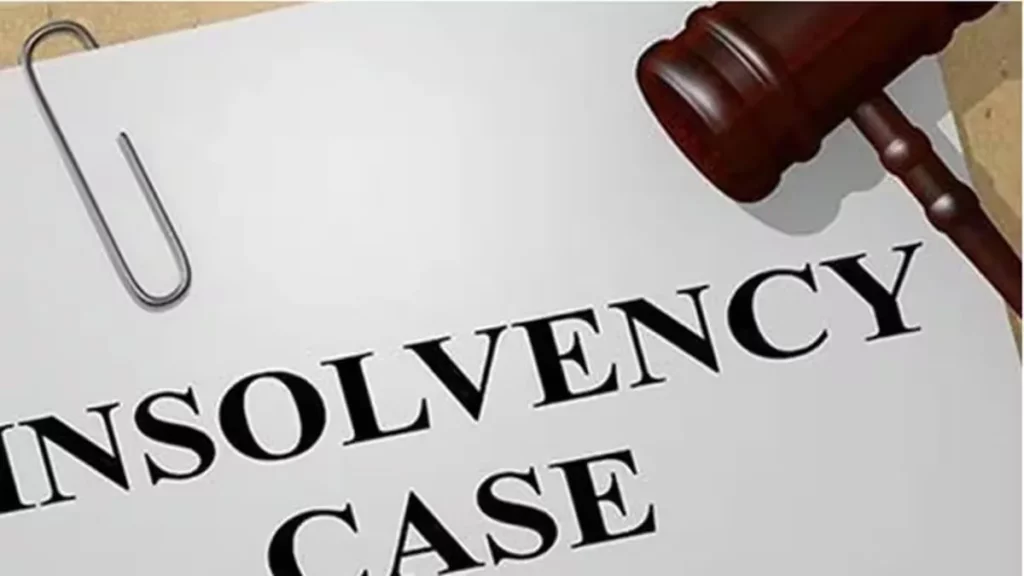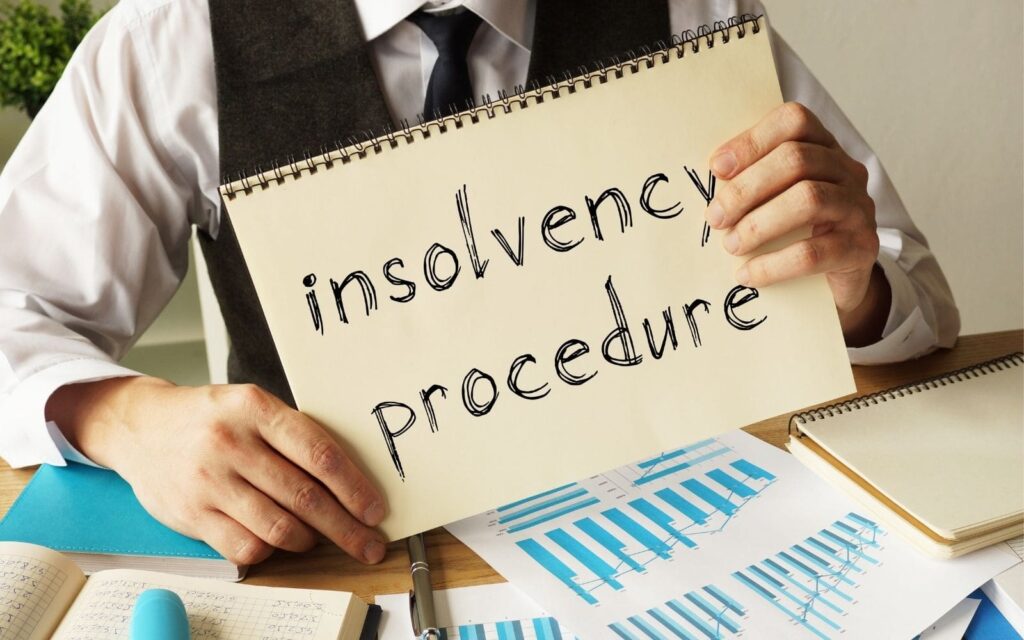Insolvency lawyers play a crucial role in guiding individuals and businesses through the complex process of financial recovery. With their expertise in insolvency laws and regulations, these legal professionals serve as trusted advisors during challenging times, helping clients navigate their way back to stability and solvency. In this article, we will delve into the various aspects of their role and explore how they contribute to the overall success of financial recovery.
Understanding Insolvency: A Brief Overview
Before diving into the intricacies of the role of best insolvency lawyers, it is important to understand the concept of insolvency itself. Insolvency refers to the financial state of an individual or business where their liabilities exceed their assets, making it difficult for them to meet their financial obligations. It often requires intervention from legal experts to assess the situation, devise recovery strategies, and mitigate potential risks. Let’s now explore the legal implications of insolvency.
The Concept of Insolvency
Insolvency, at its core, is a financial state that necessitates legal intervention. When a person or a business becomes insolvent, it triggers a series of legal processes and procedures aimed at achieving financial recovery. Insolvency can be caused by various factors, such as economic downturns, mismanagement, or unforeseen circumstances. Regardless of the cause, insolvency lawyers play a vital role in guiding individuals and businesses through this complex situation. Click here for more strategies of experienced insolvency lawyers.

Legal Implications of Insolvency
The legal implications of insolvency are vast and multifaceted. Insolvency lawyers are well-versed in the intricate web of laws and regulations surrounding financial recovery. They provide essential guidance on matters such as debt restructuring, negotiation with creditors, and potential legal actions. With their expertise, insolvency lawyers ensure that their clients are well-informed of their rights and obligations throughout the recovery process.
One key aspect of the legal implications of insolvency is the concept of bankruptcy. Bankruptcy is a legal process that allows individuals or businesses to seek relief from their debts when they are unable to repay them. It provides a structured framework for the distribution of assets and the discharge of debts, offering a fresh start for those facing insurmountable financial challenges.
Bankruptcy proceedings involve various stages, including the filing of a bankruptcy petition, the appointment of a trustee, and the assessment of assets and liabilities. Insolvency lawyers play a crucial role in guiding their clients through these stages, ensuring compliance with legal requirements and protecting their interests.
Another important legal implication of insolvency is the potential for legal actions against directors or officers of a company. In cases where insolvency is a result of mismanagement or fraudulent activities, insolvency lawyers may initiate legal proceedings to hold responsible parties accountable. This can involve pursuing claims for breach of fiduciary duty, fraudulent conveyance, or preferential payments.
Furthermore, insolvency lawyers also assist their clients in navigating the complex landscape of debt restructuring. This involves negotiating with creditors to modify the terms of existing debts, such as extending repayment periods or reducing interest rates. By facilitating these negotiations, insolvency lawyers help their clients develop feasible repayment plans and improve their financial stability.
In conclusion, the legal implications of insolvency are far-reaching and require the expertise of insolvency lawyers to navigate effectively. From bankruptcy proceedings to legal actions against responsible parties, these legal professionals play a crucial role in guiding individuals and businesses through the complex process of financial recovery.
The Role of Insolvency Lawyers: A Deep Dive
Now that we have a basic understanding of insolvency, let us dive deeper into the pivotal role that insolvency lawyers play in guiding financial recovery.
Insolvency lawyers are highly specialized legal professionals who focus on assisting individuals and businesses facing financial distress. Their expertise goes beyond just understanding the legal framework; they also possess a deep understanding of financial matters, allowing them to provide comprehensive guidance to their clients. By combining legal knowledge with financial acumen, insolvency lawyers can offer holistic solutions that address both the legal and financial aspects of insolvency.
The Importance of Legal Guidance in Financial Recovery
Insolvency lawyers provide crucial legal guidance throughout the financial recovery process. They analyze their clients’ financial situations, identify potential risks, and devise strategic plans to overcome them. Their expertise enables them to offer tailored advice and solutions that align with their clients’ specific circumstances. By addressing legal complexities, insolvency lawyers ensure that their clients can navigate the recovery process smoothly and effectively.
Moreover, insolvency lawyers act as advocates for their clients, representing them in court proceedings and negotiations with creditors. This representation is vital in safeguarding the rights and interests of the insolvent party, ensuring fair treatment and due process. In essence, insolvency lawyers serve as both legal advisors and staunch defenders of their clients’ rights in the complex landscape of financial recovery.

Key Responsibilities of Insolvency Lawyers
Insolvency lawyers shoulder a range of responsibilities to facilitate financial recovery. They provide clients with legal representation, ensuring that their interests are protected in negotiations with creditors and other stakeholders. They assist in the preparation and submission of necessary legal documents, such as bankruptcy filings or debt restructuring proposals. Furthermore, insolvency lawyers deploy their negotiation skills to reach favorable settlements and agreements, minimizing the adverse impact on their clients’ financial well-being.
Additionally, insolvency lawyers often collaborate with other professionals, such as accountants and financial advisors, to develop comprehensive strategies for financial recovery. This multidisciplinary approach ensures that all aspects of the client’s financial situation are taken into account, leading to more robust and effective solutions. By leveraging their network of experts and resources, insolvency lawyers can provide clients with a comprehensive support system that addresses every facet of the insolvency process.
The Process of Financial Recovery
Financial recovery involves a series of carefully planned steps to overcome insolvency and regain stability. Insolvency lawyers guide their clients through this intricate process, ensuring that each step is executed effectively.
Embarking on the journey of financial recovery is akin to navigating through a complex maze of financial challenges and legal intricacies. It requires a blend of strategic thinking, legal expertise, and a deep understanding of financial systems. Insolvency lawyers serve as beacons of hope for individuals and businesses facing insolvency, offering not just legal guidance but also a sense of reassurance during tumultuous times.
Initial Assessment and Planning
The journey towards financial recovery begins with a comprehensive assessment of the client’s financial situation. Insolvency lawyers analyze the assets, liabilities, and income streams to gain a holistic understanding of the challenges at hand. Based on this assessment, they develop personalized plans to address the underlying issues and outline a path towards recovery.
During the initial assessment phase, insolvency lawyers delve deep into the financial records and history of their clients, unraveling the complexities that led to the current state of insolvency. This meticulous examination serves as the foundation for crafting tailored strategies that are not just effective in the short term but also sustainable in the long run. By taking a proactive approach to financial assessment, insolvency lawyers empower their clients to confront their financial realities with clarity and purpose.
Implementation of Recovery Strategies
After thorough planning, it is time to implement the recovery strategies. Insolvency lawyers work closely with their clients to execute strategic actions, such as debt renegotiation, asset liquidation, or business restructuring. Throughout this process, they ensure compliance with legal requirements and provide ongoing support to their clients.
The implementation phase marks a critical juncture in the financial recovery process, where the carefully crafted plans start to materialize into tangible outcomes. Insolvency lawyers act as catalysts for change, orchestrating negotiations, transactions, and restructuring efforts with precision and expertise. By fostering collaboration between stakeholders and overseeing the execution of recovery strategies, insolvency lawyers pave the way for their clients to emerge stronger and more resilient from the challenges of insolvency.

The Impact of Insolvency Lawyers on Businesses
Insolvency lawyers not only guide individuals but also provide crucial support to businesses facing financial challenges.
When a business is navigating the complex waters of insolvency, the expertise of insolvency lawyers becomes invaluable. These legal professionals go beyond just providing guidance; they serve as strategic partners in the company’s journey towards financial stability. By delving deep into the financial intricacies of the business, insolvency lawyers can offer tailored solutions that address specific challenges and pave the way for a successful turnaround.
Mitigating Financial Risks
Businesses dealing with insolvency often face significant financial risks. Insolvency lawyers specialize in identifying and mitigating these risks, safeguarding the interests of the business and its stakeholders. By analyzing the financial landscape, devising risk management strategies, and navigating the legal framework, insolvency lawyers help businesses weather the storm and emerge stronger.
Moreover, insolvency lawyers are adept at foreseeing potential obstacles that may arise during the restructuring process. Their proactive approach enables businesses to anticipate and address risks before they escalate, ensuring a smoother transition towards financial recovery. By having a keen eye for detail and a comprehensive understanding of insolvency laws, these lawyers act as shields, protecting businesses from unforeseen financial pitfalls.
Facilitating Business Continuity
During times of financial distress, the survival of a business is paramount. Insolvency lawyers play a vital role in facilitating business continuity by exploring alternative options, such as debt restructuring or asset protection measures. Their expertise allows them to guide businesses towards the most sustainable recovery path, ensuring the preservation of jobs and the long-term viability of the enterprise.
Furthermore, insolvency lawyers act as mediators between the various stakeholders involved in the insolvency process. By fostering open communication and negotiation, they help build consensus among creditors, shareholders, and management, fostering a collaborative environment that is conducive to achieving common goals. This collaborative approach not only streamlines decision-making processes but also enhances transparency and accountability within the organization, laying a solid foundation for future growth and success.
Choosing the Right Insolvency Lawyer
When faced with financial challenges, selecting the right insolvency lawyer becomes crucial for successful recovery.
Essential Qualities to Look For
Integrity, expertise, and effective communication are key qualities to look for in an insolvency lawyer. Financial recovery is a complex process that requires trust and transparency. The right insolvency lawyer should possess a deep understanding of the legal landscape, ensuring they can navigate through the challenges and provide sound advice.
The Role of Experience and Expertise
Experience and expertise are invaluable assets for insolvency lawyers. The complexities surrounding financial recovery necessitate professionals who have dealt with similar cases in the past. An experienced insolvency lawyer brings a wealth of knowledge and insights, enabling them to craft effective strategies and anticipate potential obstacles.
In conclusion, the role of insolvency lawyers in guiding financial recovery cannot be overstated. Their expertise in insolvency laws and regulations, coupled with their ability to navigate complex financial landscapes, makes them indispensable allies during times of distress. By providing legal guidance, strategic planning, and business support, insolvency lawyers empower individuals and businesses to overcome insolvency and journey towards financial stability.
